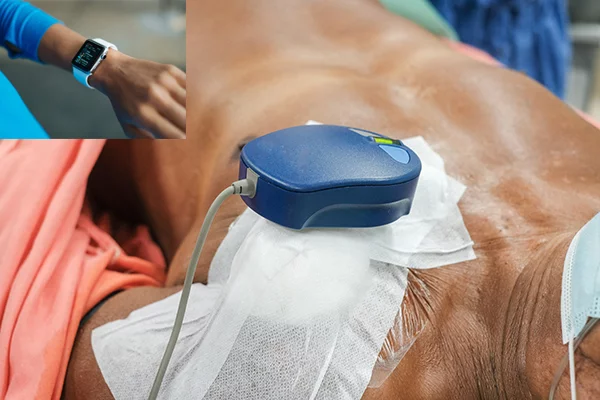
Despite the fact that pacemakers are made to be shielded from electromagnetic interference, some electronic gadgets create electromagnetic waves that could affect how well a pacemaker works. Especially if they have a strong Wi-Fi or Bluetooth signal, smartwatches may generate such waves. Electromagnetic fields (EMF) released by smartwatches have the potential to disrupt the operation of pacemakers, which are medical devices that help control the heart’s rhythm. A recent study in the Heart Rhythm Journal noted that bioimpedance technology may create interference in patients with cardiac implantable electronic devices (CIEDs). We asked Dr. Robert Segal, a board-certified cardiologist and the founder of Manhattan Cardiology about this.
Have there been any cases you can think of where a smartwatch has caused problems with the pacemaker?
Modern pacemakers are made to be immune to most types of electromagnetic interference, including that created by smartwatches, claims the American Heart Association. There have, however, been a few reports of pacemaker and smartwatch interference. Interference occasionally caused transient pacing inhibition or unsuitable pacing. It is important to note that such cases are relatively rare and more likely to occur with older pacemaker models that are not shielded against electromagnetic interference.
The study says more research is needed. In the meantime, do doctors start warning patients? Do they already?
You should speak with your doctor if you have a pacemaker and are worried that a smartwatch might interfere with it. Your doctor may assess your particular pacemaker and offer advice on how to use a smartwatch safely. Some precautions are:
- wearing a smartwatch on the wrist on the other side from where a pacemaker has been implanted
- putting the pacemaker at least 6 inches from the smartwatch
- avoiding prolonged electromagnetic field exposure from the smartwatch, such as while sleeping
If this proves to be a problem, how does it get fixed?
In general, whenever using electronic equipment close to a pacemaker, it’s wise to err on the side of caution. The use of a smartwatch should be stopped right away if you have any symptoms like dizziness, chest pain, or palpitations.



